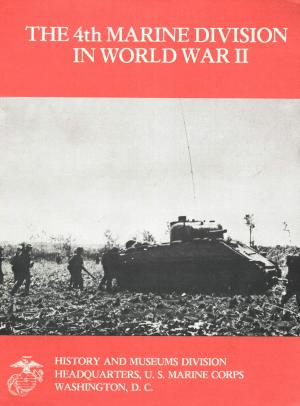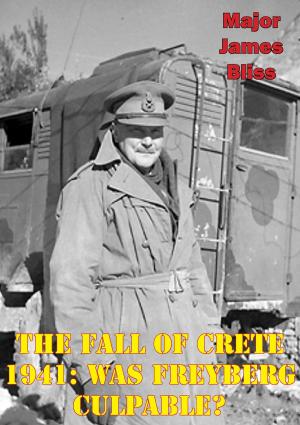From Salerno To Rome: General Mark W. Clark And The Challenges Of Coalition Warfare
Nonfiction, History, Germany, European General, Military, United States| Author: | Major Glenn L. King | ISBN: | 9781786250575 |
| Publisher: | Lucknow Books | Publication: | November 6, 2015 |
| Imprint: | Lucknow Books | Language: | English |
| Author: | Major Glenn L. King |
| ISBN: | 9781786250575 |
| Publisher: | Lucknow Books |
| Publication: | November 6, 2015 |
| Imprint: | Lucknow Books |
| Language: | English |
On 9 September 1943 the United States Fifth Army landed at Salerno, commencing a lengthy and costly campaign that would transit the Italian Peninsula. Lieutenant General Mark W. Clark commanded this army. His many supporters, including Winston Churchill and General Dwight D. Eisenhower, considered him a brilliant staff officer and trainer. His detractors, including General George S. Patton, considered him overly ambitious and self serving. Clark had been promoted ahead of many senior and experienced officers, some of whom were now his subordinate commanders within the Fifth Army. His army would come under the jurisdiction of the Fifteenth Army Group, a combined American-British Headquarters commanded by General Harold Alexander, an Englishmen. Clark would command a number of foreign troops, including the British X Corps, the New Zealand Corps and the French Expeditionary Corps. Throughout this campaign, Clark would face the complexities of coalition command, tactical in nature but with strategic consequences. This thesis contends that the command arrangements within Fifteenth Army Group, together with biased perceptions, greatly influenced the decision making of General Clark, an accomplished staff officer yet inexperienced army commander.
On 9 September 1943 the United States Fifth Army landed at Salerno, commencing a lengthy and costly campaign that would transit the Italian Peninsula. Lieutenant General Mark W. Clark commanded this army. His many supporters, including Winston Churchill and General Dwight D. Eisenhower, considered him a brilliant staff officer and trainer. His detractors, including General George S. Patton, considered him overly ambitious and self serving. Clark had been promoted ahead of many senior and experienced officers, some of whom were now his subordinate commanders within the Fifth Army. His army would come under the jurisdiction of the Fifteenth Army Group, a combined American-British Headquarters commanded by General Harold Alexander, an Englishmen. Clark would command a number of foreign troops, including the British X Corps, the New Zealand Corps and the French Expeditionary Corps. Throughout this campaign, Clark would face the complexities of coalition command, tactical in nature but with strategic consequences. This thesis contends that the command arrangements within Fifteenth Army Group, together with biased perceptions, greatly influenced the decision making of General Clark, an accomplished staff officer yet inexperienced army commander.


![Cover of the book 4th Armored Division In The Encirclement Of Nancy [Illustrated Edition] by Major Glenn L. King](https://www.kuoky.com/images/2014/august/300x300/9781782893868-4xCN_300x.jpg)


![Cover of the book With Cavalry In 1915, The British Trooper In The Trench Line, Through Second Battle Of Ypres [Illustrated Edition] by Major Glenn L. King](https://www.kuoky.com/images/2012/april/300x300/9781782890737-IjQw_300x.jpg)


![Cover of the book Battle Of Gazala (May- June 1942) [Illustrated Edition] by Major Glenn L. King](https://www.kuoky.com/images/2014/august/300x300/9781782893899-SGRM_300x.jpg)
![Cover of the book 48 Million Tons To Eisenhower: The Role Of The SOS In The Defeat Of Germany [Illustrated Edition] by Major Glenn L. King](https://www.kuoky.com/images/2015/november/300x300/9781786257666-m0lC_300x.jpg)

![Cover of the book Ambassador Morgenthau’s Story [Illustrated Edition] by Major Glenn L. King](https://www.kuoky.com/images/2014/august/300x300/9781782893004-CP2b_300x.jpg)



